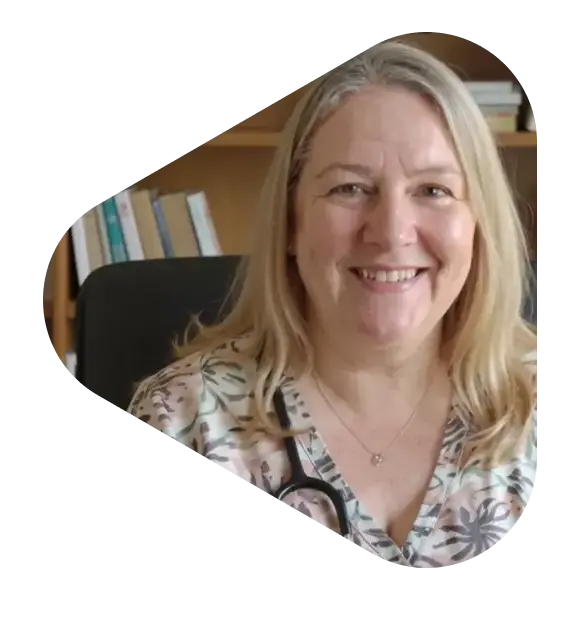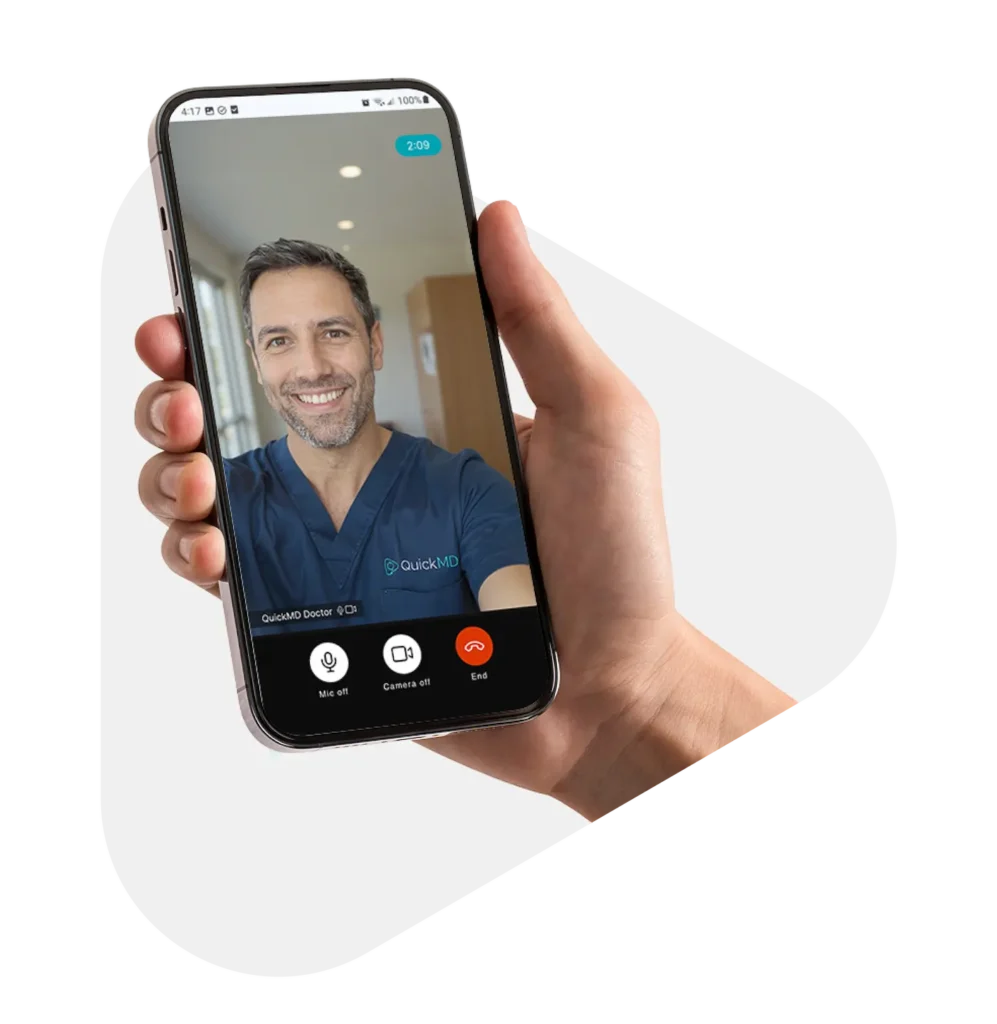Medication-Assisted Treatment in Wisconsin
QuickMD offers private, judgment-free addiction treatment online in Wisconsin for substance use disorders, including treatment with Suboxone®.
Book now

Manage opioid cravings and withdrawal with Suboxone® treatment
Learn about treatment
Why choose QuickMD for addiction treatment in Wisconsin?
Getting care at QuickMD is simple, secure, and accessible. We eliminate the hassle of waiting rooms and insurance. Here’s why thousands of patients trust us for quick, compassionate care:
Same-day
appointments
No insurance
required
Licensed &
certified providers
100% online
appointments
Over 100K+
patients served
Nomemberships
Start treatment with Suboxone® today
At QuickMD, getting your Suboxone® prescription is simple. Schedule a quick phone or video appointment with a licensed provider and we’ll send your prescription directly to your pharmacy.
Why virtual addiction treatment matters in Wisconsin
Addiction doesn’t wait for clinic hours. And in a state like Wisconsin, where long travel times and limited access to specialists are common, virtual care can be a lifeline.
In Wisconsin, the opioid crisis has deeply impacted communities across the state. In 2022, there were 1,464 opioid-related deaths, marking a 74% increase from 2018, according to the Wisconsin Office of the Commissioner of Insurance. However, recent data indicates a positive shift, with opioid deaths in Wisconsin falling to their lowest level in June 2024 since April 2020.
The elimination of the federal waiver requirement to prescribe buprenorphine, a key medication in treating opioid use disorder, has further expanded access. Under the MATE Act, effective June 2023, providers can prescribe buprenorphine without a special waiver, provided they complete an eight-hour training.
Even still, access to treatment remains a significant challenge, especially in rural areas where specialized care is limited. Virtual addiction treatment offers a solution by providing immediate, confidential care without the need for long-distance travel.
How access to addiction treatment is improving in Wisconsin
There’s still a long way to go, but the good news is that treatment options in Wisconsin are growing. Telemedicine has helped break down old barriers like distance, stigma, and clinic waitlists.
In 2023, Wisconsin passed Senate Bill 476, now 2023 Wisconsin Act 180, making it easier for people to receive care through telemedicine. The law prevents Medicaid from requiring telemedicine providers to have a physical location in the state. That means patients, no matter where they live, can now access services like addiction treatment online, without having to travel or wait weeks for an appointment.
Care is also improving for people in the justice system. Under Assembly Bill 645 (2019), the state is working to expand Medication-Assisted Treatment in Wisconsin, particularly inside prisons and county jails. The goal is to ensure that incarcerated individuals struggling with opioid use disorder can receive FDA-approved medications like buprenorphine, methadone, or naltrexone, proven medications that can reduce cravings, prevent relapse, and support long-term recovery.
For those rebuilding their lives in recovery, Wisconsin Act 120 (Assembly Bill 646) helps protect job security for state employees who are using prescribed medications as part of a supervised treatment plan. It also created a registry of recovery residences, or safe, supportive places where people can live while focusing on their healing.
Behind these efforts are dedicated advocacy groups working to make care more accessible, compassionate, and stigma-free. NAMI Wisconsin, based in Madison, offers education and support for individuals and families navigating mental illness and substance use.
How our online MAT helps people across Wisconsin
At QuickMD, we’re proud to be part of this growing support system. Our online Medication-Assisted Treatment (MAT) program makes it easier for people in Wisconsin to get the help they need, on their terms.
MAT combines medication with support from licensed providers to treat opioid use disorder in a safe, effective way. It works by treating opioid withdrawal symptoms, decreasing opioid cravings, and helping restore balance to the brain and nervous system. For many patients, it also means lessening painful symptoms that often make recovery feel out of reach.
You can speak with a licensed provider, often the same day, and start a treatment plan from the privacy of your home. We prescribe Suboxone® and other FDA-approved medications when appropriate, and we’ll work with you to build a plan that fits your life. No clinic visits. No stigma. Just care that moves at your pace.
Whether you’re in Milwaukee, Madison, or Ephraim, we’re here to help you take the next step so you can take control of your health.
Tips for managing addiction treatment
1. Set reminders for appointments and medication
Keeping consistent with your treatment can help you feel more in control. Set gentle reminders on your phone to take your medication or check in for appointments. Something as simple as linking your dose to a daily habit, like brushing your teeth, can make it easier to remember.
2. Talk openly with your provider
Your needs and goals may shift over time, and that’s completely normal. Whether you’re experiencing new side effects, feeling discouraged, or just have questions, we’re here to listen. Honest conversations help us tailor your treatment so it works for you, not the other way around.
3. Lean on your support system
Recovery can feel isolating at times, but you’re not alone. Lean on the people you trust, whether it’s a close friend, a family member, or a support group. There’s real strength in having someone to talk to, especially on the hard days.
4. Know that recovery isn’t one-size-fits-all
There’s no single timeline for recovery. Some people make fast progress, while others take things step by step. What matters is that you’re moving forward, even if some days feel harder than others. Every small win counts.
Remember: You don’t have to do it perfectly. You just have to keep going. We’re here for you and want to empower you to take control of your health.
We also offer these services in Wisconsin
At QuickMD, we’re committed to bringing convenient, affordable, and compassionate virtual care to patients across Wisconsin. In addition to addiction treatment, we proudly offer:
- Medical Weight Loss
- Urgent Care Services
- Virtual Counseling Sessions

Medical Weight Loss
Our online weight loss treatment helps you explore options like Ozempic® and Mounjaro® with licensed providers, offering support tailored to your health goals.

Urgent Care Services
Get quick, compassionate care for common illnesses online, 7 days a week. Anytime, anywhere.

Virtual Counseling Sessions
Talk to licensed providers to support your mental well-being on your terms, when and where you need it.

Medical Weight Loss
Our online weight loss treatment helps you explore options like Ozempic® and Mounjaro® with licensed providers, offering support tailored to your health goals.

Urgent Care Services
Get quick, compassionate care for common illnesses online, 7 days a week. Anytime, anywhere.

Virtual Counseling Sessions
Get quick, compassionate care for common illnesses online, 7 days a week. Anytime, anywhere.
Start treatment with Suboxone® today
At QuickMD, getting your Suboxone® prescription is simple. Schedule a quick phone or video appointment with a licensed provider and we’ll send your prescription directly to your pharmacy.
Frequently asked questions about MAT in Wisconsin
How much does rehab cost in Wisconsin?
The cost of addiction treatment in Wisconsin varies based on the type of program, duration, and services provided, such as behavioral therapies. The average cost for residential treatment can run $56,625 in Wisconsin, according to the National Center for Drug Abuse Statistics.
What are controlled substances in Wisconsin?
In Wisconsin, controlled substances are drugs or chemicals regulated under Chapter 961 of the Wisconsin Statutes, known as the Uniform Controlled Substances Act. These substances are categorized into five schedules (I-V) based on their potential for abuse, medical use, and safety.
What is a restricted controlled substance in Wisconsin?
A restricted controlled substance is a drug that comes with stricter prescribing rules because of its potential for misuse. For example, some opioids and benzodiazepines fall into this category. Even though they’re tightly regulated, restricted substances can still be prescribed safely, especially when part of a supervised treatment plan.


